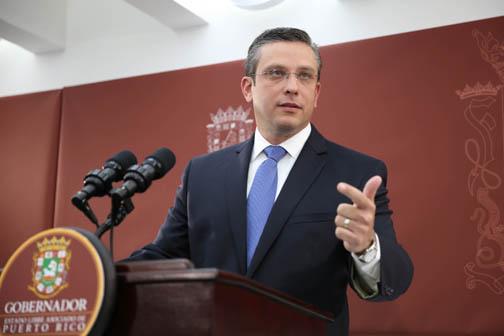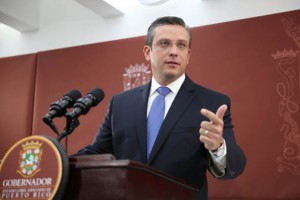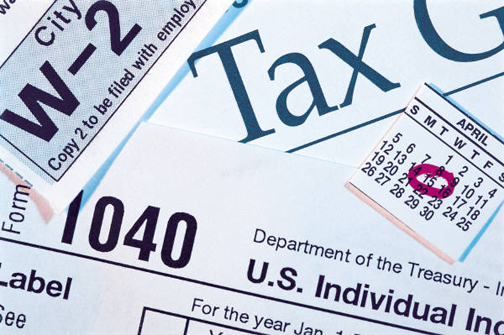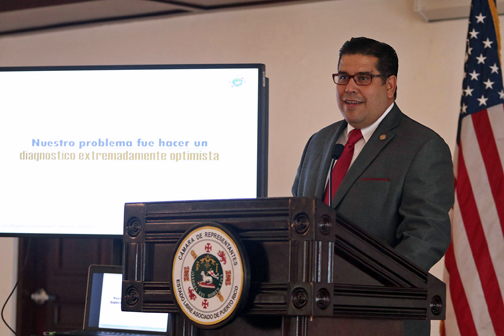Governor proposes overhaul of Puerto Rico tax structure

Puerto Rico Gov. Alejandro García-Padilla offered a televised speech Tuesday in which he outlined his proposal for overhauling the island’s current tax system to what he described as a “simpler and fair one.”
Although he stopped short of saying it, the new structure would be based on a 16 percent value-added tax that would eliminate the current sales and use tax structure that seeks to “dissuade tax evasion head-on and dramatically reduce income taxes for citizens.”
This will leave more money in people’s pockets, and give them the power to decide how much they contribute to the system through their daily consumption, he said. The governor plans to formally introduce a bill in the Legislature today to create a new tax code.
“We currently have a tax system that penalizes work and productivity while encouraging evasion. It is inefficient and unfair. The current system punishes the middle class and the poor that work so hard to provide for their families,” he said.
García-Padilla, who has been out of the reach of the press for several weeks, explained that this tax overhaul aims to evenly distribute the tax burden among Puerto Rico residents. Eighty-five percent of workers and 15 percent of those that are self-employed currently contribute to income tax revenues, which represent the principal source of revenue for the Commonwealth.
“In Puerto Rico, only 12,000 people file tax returns for $150,000 and up of annual income, which is in stark contrast to the luxury cars and houses we see on our streets,” he said.
“The current system hinders economic development because it rests on the shoulders of our hard workers. More than 80 percent of those that pay taxes are working class people who are unable to hide their income or come up with exemptions and avoid paying. The fact that some pay while others ignore their tax responsibility is an injustice that needs to end now,” said García-Padilla.
The new tax code would rely on the VAT system, in which citizens pay taxes for what they buy. It would also eliminate Puerto Rico’s gross receipts tax (known as “patente nacional”) and will exempt the first $40,000 of income for individuals and $80,000 for married couples, regardless of their total annual salary.
“The goal is to create a fair and effective system based primarily on taxing consumption and people will see a dramatic reduction in their contributions from income. This will be accompanied by credits for businesses, as well as reimbursements for the poor and elderly citizens, returning part of the VAT paid to those who most need it,” García-Padilla said.
In his speech, García-Padilla vowed that “resposible citizens will pay less taxes; 850,000 tax payers will not have to pay for income and the rest will see a reduction in contributions paid. After the new system is in place, no taxpayer will pay over an effective rate of 21 percent, which currently can reach up to 38 percent. Tax rates for corporations will be reduced by 25 percent.”
Additionally, García-Padilla proposed that “three times a year, those who earn $35,000 or less receive an additional tax return check for what they have paid in purchase taxes. Those who earn $20,000 or less will be reimbursed 100 percent. I’ve also proposed that prescription medication, groceries, private property leasing and public schools shall be exempt from all taxes.”
“With this tax system overhaul we can help direct the island’s revenues toward the future, and ensure that we will borrow less, pay our current debts and pay down the debt previous administrations committed to without the appropriate means of repayment.”
Resident Commissioner weighs in
Prior to the governor’s televised appearance, Pedro Pierluisi Puerto Rico’s resident commissioner in Washington and president of the New Progressive Party, posted a video online blaming the island’s current economic crisis on the fiscal policies enacted by the opposing Popular Democratic Party that García-Padilla heads.
“Despite our warnings, now they propose to impose a huge additional tax burden on our people in the form of a tax of up to 16 percent as part of an alleged tax reform that instead of bringing taxpayer relief, will increase the revenues for the government by more than $2 billion. In simple words, they will change the name of the [sales and use tax] to VAT, but what it’s really about is increasing it from 7 percent to double or even 16 percent,” he said.
“A tax such as the one proposed is not only an assault on your pocket but will end up sinking our economy,” Pierluisi said. “We’ll continue to work to convince the present administration to desist from implementing that VAT. But if the administration pays no attention and imposes it, we will evaluate the best way to eliminate it or change it if, with the people’s favor, we take over government in 2017.”
In a report released last week, KPMG Accounting Services — the firm the government hired to draft the tax reform proposal — said implementing a VAT system could take at least 18 months or longer to implement. That could mean a start date that could coincide with the next elections.










